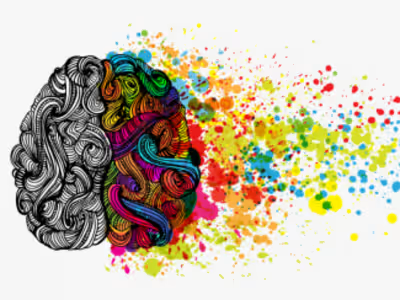Legalizing Street Drugs
Criminal Studies paper I edited and rewrote for a client of mine. You can read the whole essay below.
Legalizing
Street Drugs
The criminalization of street drugs has multiple adverse costs
on the lives of people who are caught for personal use and possession of these
street drugs. The aggressive criminal-justice-system-based approach to
prohibiting drug use has not created the improvements in society that were
expected; instead has led to disproportionate distress for many. This paper
argues in favor of legalizing common street drugs to reduce the distress caused
by criminal convictions that disproportionately affect the marginalized,
develop a rehabilitation-focused framework for substance abuse and prompt the
governmental bodies to focus more on the overarching causes of increased
substance use.
Racial discrimination is a prominent issue that is deeply
prevalent in the criminal justice system. Multiple studies have shown that
communities of color are overrepresented in the system due to an increased rate
of convictions, leading to further stigmatization and racial divide. Misuse of
power by law enforcement officers and criminalizing possession of drugs both
combine to make the marginalized suffer from severe incarcerations. People of
color get sentenced to more prison years than their white counterparts and are
forced to accept the penalty. Many from lower socio-economic backgrounds are
unable to gather enough money for bail and are left in debt from fines and
legal fees. Moreover, their criminal record leaves them struggling for housing,
employment, welfare assistance, education and in many cases also separates them
from their families. It creates further discrimination and societal stigma in
their daily lives. Decriminalizing the use and possession of all drugs will
lessen the impact on marginalized communities and allow them access to multiple
resources without the barriers that result from being prosecuted.
Substances such as heroin and cocaine are highly addictive and
can uproot a person’s life if they become physically or psychologically
dependent on them. People use these
substances for various reasons and in certain cases addiction results when the
underlying cause is stress, trauma, or a pre-existing mental health
condition. People with mental health
issues have constant interaction with the justice system. The criminalization
of drugs increases the societal and personal stigma people with addiction face
which leads to further harm rather than being an effective method of
prohibiting drug use. Instead of focusing on a prevention and rehabilitation
framework, prosecuting people with severe addiction makes them engage in more
high-risk behaviors like needle sharing and buying drugs from illegal drug
markets. Barriers to accessing harm reduction services and other rehabilitation
resources also create further distress with maintaining relationships, housing,
and holding down a job. The legalization of street drugs will lessen this
societal, economic, and personal impact. There would be fewer fatalities from a
drug overdose when people are educated on the consequences of drug use and can
access affordable treatment services without facing discrimination.
The “war on drugs” that started around the 1970s has shown to be
extremely costly plus has been ineffective in reducing drug use and
distribution. The continuous criminal approach to dealing with the overdose
crisis in recent years has caused more complications than improvements. As mentioned
previously, there are various reasons for substance abuse. Prolonged life
stressors, past trauma, and other mental health issues all contribute to
increased dependence on drugs. While drug dependence can lead to housing and
employment trouble, the same occurs the other way around as well. Constant
homelessness and dire unemployment can lead to many resorting to drug misuse as
a form of self-medication. For example, the Downtown Eastside community faces a
disproportionate amount of houselessness, poverty, and substance abuse
problems. Their adverse experiences with the welfare assistance and social
service programs (that are based on a colonial mentality) force them to not
seek help when needed. The City of Vancouver, in their 2014 “Caring For All”
report, suggest innovative plans to address the city’s mental health crisis like
adding more treatment teams and supportive housing for people with psychiatric
issues. However, without asking the impacted communities what they need and
without acknowledging the underlying institutional causes that lead to
homelessness and substance abuse; change cannot occur. By legalizing drug
possession and use, the government can focus more on improving housing conditions,
employment rates, educating the public, and reconstructing the colonial, racialized
social mechanisms to provide better access to resources.
Rethinking the approach to minimizing drug use and legalizing
possession of common street drugs will allow governmental bodies to focus on
prevention and rehabilitation. Alleviating the personal, social, and economic
consequences of existing aggressive policing will create better improvements
for individuals and society at large. Addressing basic needs like housing,
income, education, and having informed treatment programs will create more
societal change and lessen the impact on marginalized communities.
Like this project
Posted Feb 14, 2023
This is a short essay I wrote and edited for my client who was taking a Criminal Studies class.
Likes
0
Views
7





